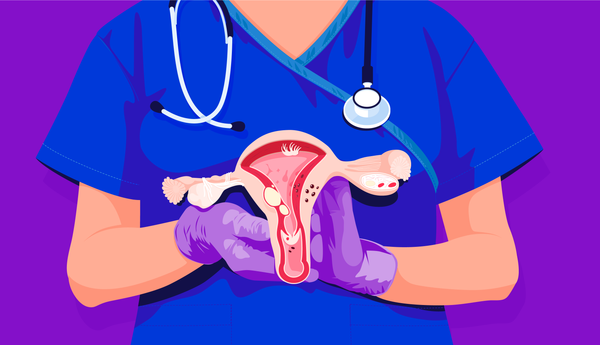Ovarian cancer treatment in Delhi encompasses various stages and challenges, reflecting the complexity of the disease. Despite being the third most common gynaecological cancer in Indian women, early detection remains elusive, often leading to diagnosis in advanced stages. Treatment outcomes depend significantly on the stage at diagnosis, with survival rates varying accordingly. While 5-year survival from ovarian cancer is notably higher in Stage I diagnoses, the majority of cases are detected in later stages, posing significant challenges. Timely intervention and appropriate medical care play pivotal roles in navigating through ovarian cancer treatment in Delhi.
Understanding Ovarian Cancer
Ovarian cancer is a type of cancer that originates in the ovaries, which are part of the female reproductive system. It involves the rapid and uncontrolled growth of abnormal cells. Early detection is crucial, but symptoms often appear only after the cancer has spread, making early diagnosis difficult.
Initial Diagnosis
The first step in ovarian cancer treatment is a thorough diagnosis. Doctors in Delhi use several methods to detect and stage the cancer:
- Pelvic Examination: The doctor palpates the pelvic organs to check for any abnormalities, including lumps, swelling, or irregularities in the size or shape of the ovaries and surrounding tissues.
- Imaging Tests: Ultrasounds and CT scans provide detailed images of the ovaries and surrounding areas to determine the tumour’s size, location, and spread to adjacent organs.
- Blood Tests: Tumor markers in the blood, such as CA-125, can indicate the presence of ovarian cancer, providing crucial information for accurate diagnosis and treatment planning.
Know more : Top 11 Early Signs of Ovarian Cancer
Staging the Cancer
Once diagnosed, the next step is to determine the cancer stage. This helps in planning the treatment strategy. Ovarian cancer is classified into four stages:
- Stage I: Cancer is confined to one or both ovaries, with no spread to other pelvic organs or tissues, making it more treatable at this early stage.
- Stage II: Cancer has spread to other pelvic tissues, including the fallopian tubes, uterus, or other nearby structures, indicating a progression from the initial stage.
- Stage III: Cancer has spread to the upper abdomen or abdominal lymph nodes, indicating a more advanced stage that requires comprehensive treatment strategies.
- Stage IV: Cancer has spread to distant organs like the liver, lungs, or other areas outside the abdomen, representing the most advanced stage of ovarian cancer.
Treatment Options
Ovarian cancer treatment in Delhi typically involves a combination of surgery and chemotherapy. The choice of treatment depends on the stage and type of ovarian cancer.
1. Surgery
Surgery is usually the first line of treatment. The aim is to remove as much of the cancer as possible. This may include removing the ovaries, fallopian tubes, uterus, and other affected tissues. In advanced stages, parts of the bowel or bladder may also be removed to ensure all cancerous cells are eliminated.
2. Chemotherapy
Chemotherapy uses drugs to kill cancer cells. It is usually administered after surgery to eliminate any remaining cancer cells. In some cases, it may be given to shrink the tumours before surgery, making them easier to remove surgically.
3. Hormone Therapy
For certain types of ovarian cancer, hormone therapy can help slow the growth of cancer cells by blocking the effects of estrogen. This is often used for ovarian stromal tumours and is administered after surgery and chemotherapy.
Managing Side Effects
Treatment for ovarian cancer can cause various side effects, including:
- Fatigue: It’s common to feel tired during and after treatment, affecting daily activities and overall energy levels.
- Nausea and Vomiting: Chemotherapy often causes nausea and vomiting, which can be managed with medication and dietary adjustments.
- Hair Loss: Many patients experience hair loss due to chemotherapy, which can be emotionally distressing but is usually temporary.
- Neuropathy: Some chemotherapy drugs can cause numbness or tingling in the hands and feet, impacting daily activities and quality of life.
- Menopause: Surgery that removes the ovaries will cause menopause, leading to symptoms like hot flashes, mood swings, and other hormonal changes.
Post-Treatment Care
After completing treatment, regular follow-ups are crucial. These include physical exams, imaging tests, and blood tests to monitor for any signs of cancer recurrence. Maintaining a healthy lifestyle and staying in touch with your healthcare team is vital for post-treatment care to ensure ongoing health and well-being.
Prognosis
The prognosis for ovarian cancer depends on various factors, including the stage at diagnosis and the patient’s overall health. Early-stage cancers have a better prognosis, while advanced stages require more aggressive treatment. With advancements in medical technology and treatment methods available in Delhi, many patients live longer and maintain a good quality of life despite the challenges posed by ovarian cancer.
Primary Prevention
Although it’s not always possible to prevent ovarian cancer, certain measures can reduce the risk. These include using oral contraceptives, maintaining a healthy weight, and considering prophylactic surgery for high-risk individuals, especially those with a family history or genetic predisposition to ovarian cancer.
Conclusion
Ovarian cancer treatment in Delhi offers a comprehensive approach, combining advanced diagnostic methods and effective treatment options. Understanding what to expect can help you navigate the journey with confidence and hope. Regular follow-ups and a supportive healthcare team ensure the best possible outcomes. Stay informed, stay strong, and lean on your support system as you go through this challenging time.


